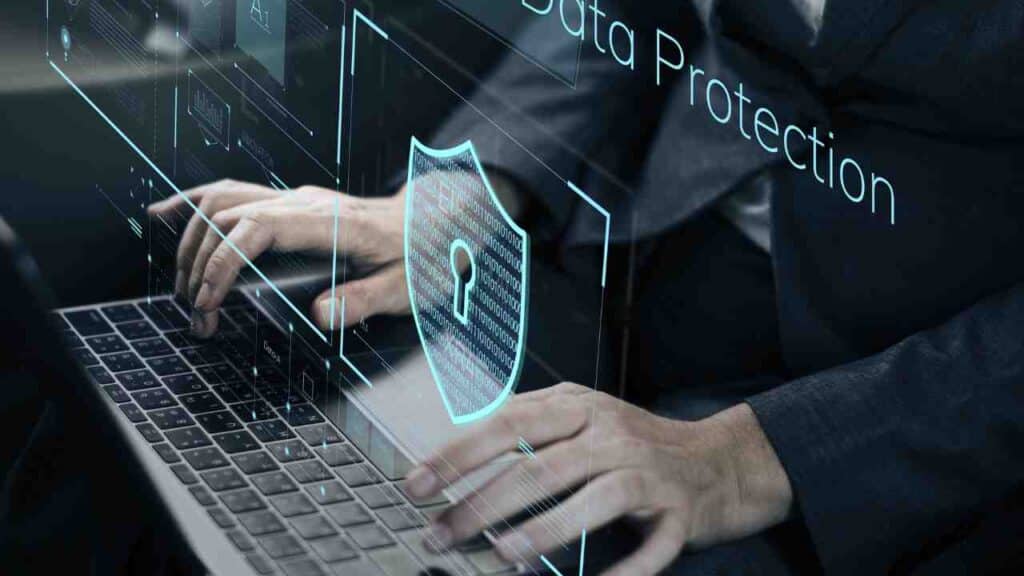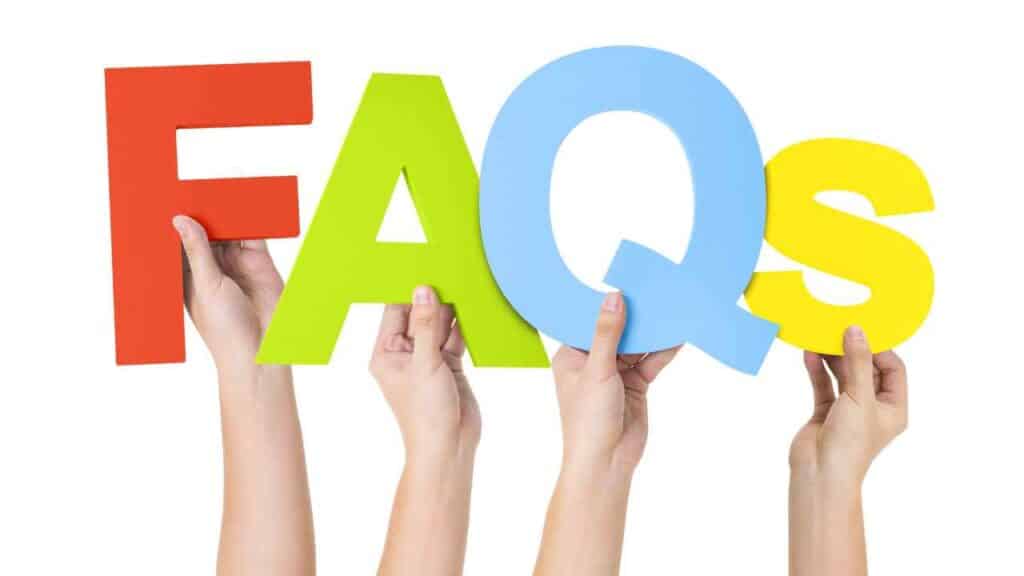Protecting CRM Information and Transactions

Get Your FREE 14-Day Trial and Take Your Business To The Next Level with an All-In-One Sales and Marketing Platform for businesses, agencies and marketers.
In today’s digital age, customer relationship management (CRM) systems have become an essential tool for businesses of all sizes. These systems allow companies to manage and analyze customer data, track sales and marketing activities, and improve overall customer satisfaction. However, with the increasing reliance on CRM systems, the need to protect sensitive information and secure transactions has become paramount. In this article, we will explore the importance of protecting CRM information and transactions, the potential risks involved, and the best practices to ensure the security of your CRM system.
The Importance of Protecting CRM Information
CRM systems contain a wealth of valuable information about customers, including their contact details, purchase history, preferences, and even personal data. This information is a goldmine for businesses, as it allows them to personalize their marketing efforts, provide better customer service, and make data-driven decisions. However, this also makes CRM systems an attractive target for cybercriminals.
1. Data Breaches: One of the biggest risks associated with CRM systems is the potential for data breaches. A data breach can occur when unauthorized individuals gain access to sensitive customer information, such as credit card details or social security numbers. The consequences of a data breach can be severe, including financial loss, reputational damage, and legal implications.
2. Identity Theft: Another risk is the potential for identity theft. If cybercriminals gain access to personal information stored in a CRM system, they can use it to impersonate customers, commit fraud, or engage in other malicious activities. This can not only harm the affected individuals but also erode trust in the business.
3. Competitive Advantage: Protecting CRM information is not just about preventing external threats; it is also about safeguarding your competitive advantage. Customer data is a valuable asset that can give your business a competitive edge. If your competitors gain access to your CRM information, they can use it to target your customers, steal your strategies, or gain insights into your business operations.
The Risks of Insecure CRM Transactions
In addition to protecting CRM information, it is equally important to secure transactions that occur within the CRM system. These transactions can include sales orders, customer payments, and other financial activities. Failing to secure CRM transactions can lead to various risks:
1. Financial Loss: If unauthorized individuals gain access to your CRM system, they can manipulate transactions, divert funds, or engage in fraudulent activities. This can result in significant financial loss for your business.
2. Reputation Damage: Insecure CRM transactions can also damage your reputation. If customers experience fraudulent transactions or unauthorized charges, they may lose trust in your business and take their business elsewhere. This can have long-term consequences for customer loyalty and brand reputation.
3. Compliance Issues: Many industries have strict regulations regarding the handling of customer data and financial transactions. Failing to secure CRM transactions can lead to compliance issues and potential legal consequences. It is essential to ensure that your CRM system meets the necessary security standards and complies with relevant regulations.
Best Practices for Protecting CRM Information and Transactions
Now that we understand the importance of protecting CRM information and transactions, let’s explore some best practices to ensure the security of your CRM system:
1. Implement Strong Access Controls
Controlling access to your CRM system is crucial for preventing unauthorized individuals from gaining access to sensitive information. Implement strong access controls, including unique user accounts, strong passwords, and multi-factor authentication. Regularly review and update user access privileges to ensure that only authorized individuals have access to the CRM system.
2. Encrypt Data
Encrypting data is an effective way to protect sensitive information stored in your CRM system. Encryption converts data into an unreadable format, making it useless to unauthorized individuals even if they gain access to it. Implement encryption for data at rest and data in transit to ensure end-to-end protection.
3. Regularly Update and Patch Your CRM System
CRM systems are constantly evolving, and software vulnerabilities can be exploited by cybercriminals. Regularly update and patch your CRM system to ensure that you have the latest security features and fixes. Keep an eye on security advisories and apply patches promptly to minimize the risk of exploitation.
4. Train Employees on Security Best Practices
Employees play a crucial role in protecting CRM information and transactions. Train your employees on security best practices, such as recognizing phishing emails, using strong passwords, and reporting suspicious activities. Regularly remind employees about the importance of data security and provide ongoing training to keep them informed about the latest threats and mitigation strategies.
5. Monitor and Audit CRM Activities
Implement monitoring and auditing mechanisms to track activities within your CRM system. Regularly review logs and audit trails to identify any suspicious activities or unauthorized access attempts. Monitoring can help detect security incidents early and allow for timely response and mitigation.
6. Backup and Disaster Recovery
Regularly backup your CRM data and implement a disaster recovery plan. In the event of a security incident or system failure, having backups and a recovery plan can help minimize downtime and ensure business continuity. Test your backups and recovery procedures regularly to ensure their effectiveness.
Protecting CRM information and transactions is of utmost importance in today’s digital landscape. The risks associated with data breaches, identity theft, and insecure transactions can have severe consequences for businesses. By implementing strong access controls, encrypting data, regularly updating and patching your CRM system, training employees on security best practices, monitoring CRM activities, and implementing backup and disaster recovery measures, you can significantly enhance the security of your CRM system. Remember, protecting CRM information and transactions is not just about compliance; it is about safeguarding your customers’ trust, your competitive advantage, and the long-term success of your business.
For an all-in-one sales and marketing platform that prioritizes the security of your CRM information and transactions, consider using SaasExpert.ca. With its robust security features and user-friendly interface, SaasExpert.ca is the ideal solution for small businesses, agency owners, and marketers.
Read more about “Securing CRM Data and Transactions” right here.
Frequently asked questions about Protecting CRM Information and Transactions.

1. 🎯 What Types of Information in My CRM Need to Be Protected?
Excellent question! Your CRM is a treasure trove of valuable information, and virtually all of it needs protection. 🛡️ This includes:
Customer Data: Names, addresses, phone numbers, and email addresses. 📧
Financial Records: Transaction history, payment methods, and sometimes credit card details. 💳
Interactions: Records of conversations, support tickets, and emails. 💬
Internal Data: Sales strategies, marketing campaigns, and employee information. 📈
In short, if it’s in your CRM, it’s important and needs to be protected. Unauthorized access to any of this info could spell disaster. 😱
2. 🔐 How Can I Make Sure My Team Handles CRM Data Responsibly?
You’re already on the right track just by asking this question! 👏 Educating your team is one of the first steps toward a more secure CRM. Here’s what you can do:
Training: Make sure everyone is trained on best practices for data protection. 📚
Access Control: Limit data access based on roles. Your marketing team might not need access to the same info as your sales team, for example. 🙅♀️
Monitoring: Regularly review who’s accessed what in your CRM, just to make sure everything’s on the up-and-up. 🕵️♂️
Strong Passwords: Encourage (or enforce) strong, unique passwords for each team member. 💪
3. 🌐 Are There Specific Certifications or Compliance Standards for CRM Security?
Great question! While there isn’t a dedicated “CRM security certification,” there are industry standards and regulations that apply, like GDPR for customer data in Europe 🇪🇺 or HIPAA for healthcare information in the U.S. 🇺🇸. Additionally, you may want to look for CRMs that are ISO 27001 certified, which signifies a strong commitment to data security. 🏆
4. 💼 As a Business Owner, What Are My Responsibilities for CRM Data Protection?
Ah, the weight of responsibility, right? 😅 But don’t worry, it’s manageable:
Due Diligence: Choose a CRM that’s known for robust security measures. 🛡️
Employee Training: Ensure your team knows how to use the CRM securely. 📚
Regular Audits: Regularly check your system for vulnerabilities. 🕵️
Legal Obligations: Stay updated on laws and regulations concerning data protection. 📜
Incident Response: Have a plan in case of data breaches or other security incidents. 🚨
Your customers are trusting you with their data; protecting it is both a legal and ethical responsibility. 🌟
5. 🤷 Can I Customize the Security Settings on My CRM, or Is It One-Size-Fits-All?
Fantastic question! Most reputable CRM systems offer a degree of customization when it comes to security settings. 🔧 This is really beneficial because, let’s face it, a small e-commerce business and a large healthcare provider don’t have the same security needs. You’ll typically find options for:
User Roles and Permissions: To limit who sees what. 👀
Data Encryption: To secure data at rest and in transit. 📦➡️🔒
Activity Logging: To keep track of who does what within the system. 📝
Just make sure to consult your CRM’s documentation or support team to understand how you can tailor the settings to your specific needs. 👌
I hope this clears up some of your questions on how to protect your CRM information and transactions. Don’t hesitate to ask if you need more details; I’m here to help! 😊






